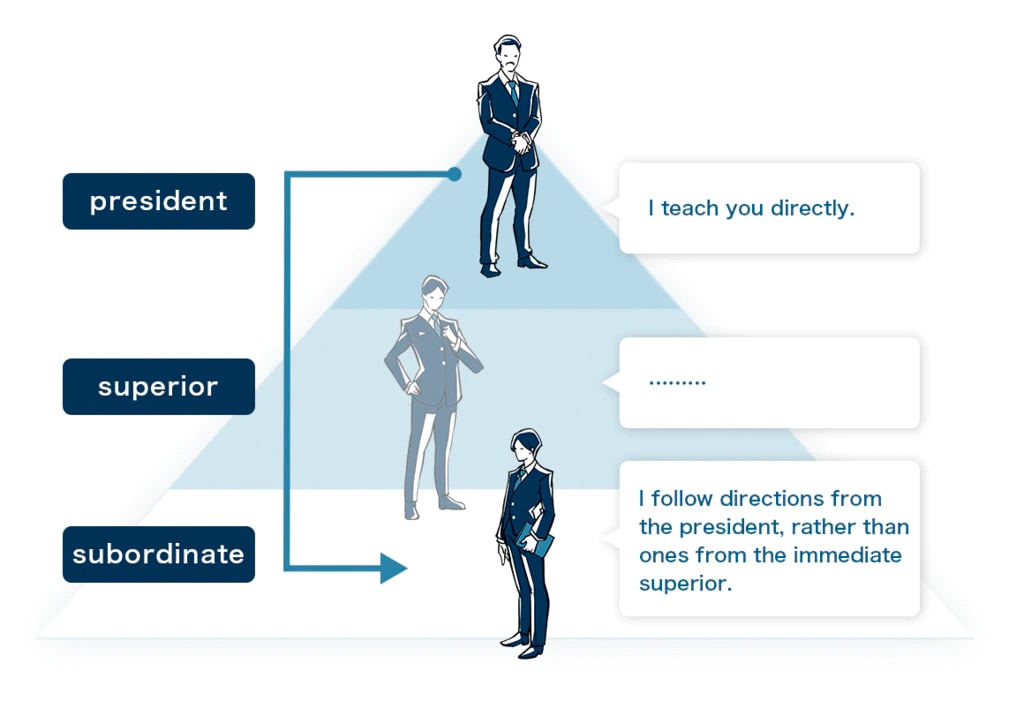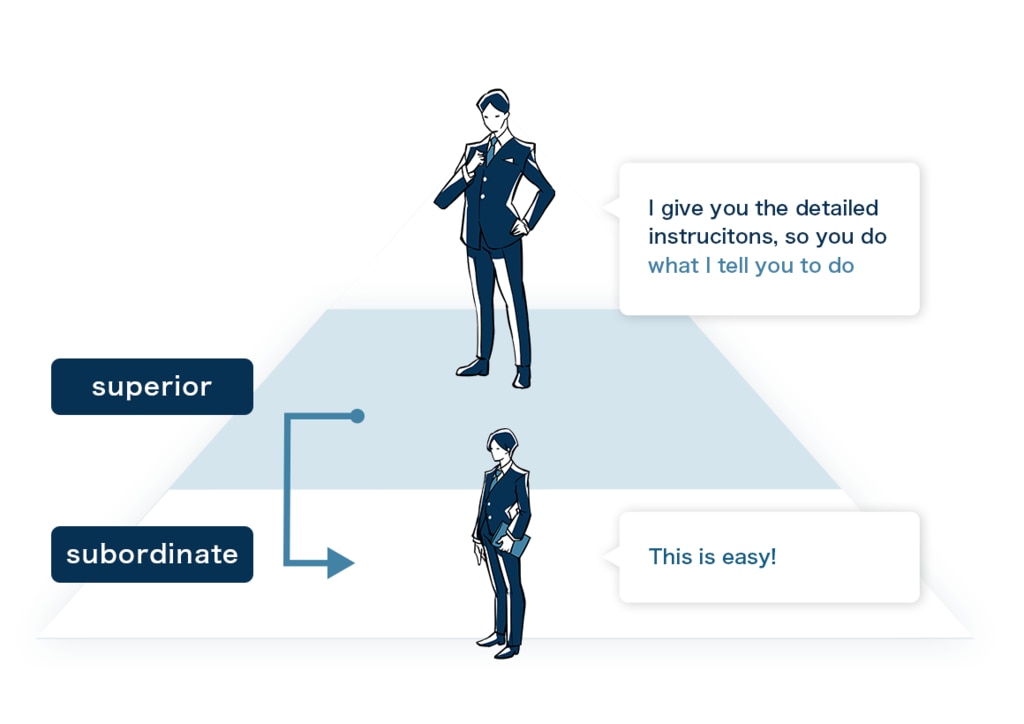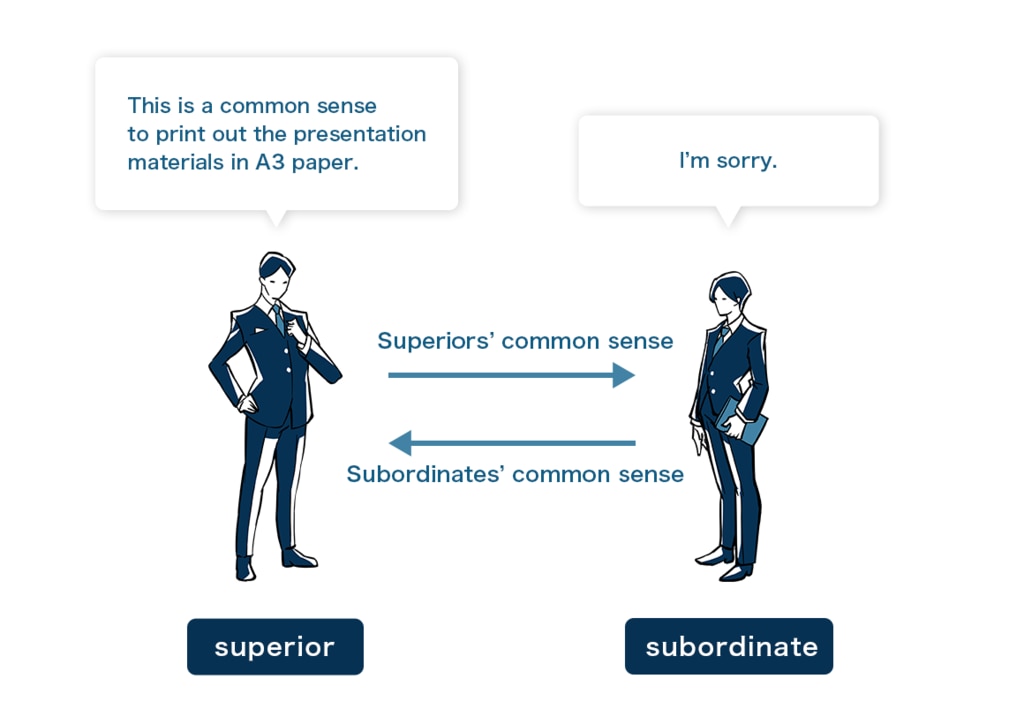What is Shikigaku?
Shikigaku is a system of result manifestation.
Shikigaku is logical framework for the creation of organizations that achieve results.
Through the purging of discrepancies in consciousness and understanding within a given company, we build up a high-performance organization.
Through the purging of discrepancies in consciousness and understanding within a given company, we build up a high-performance organization.

Shikigaku is a management theory with the aim of creating organizations in which owners, managers and all employees can focus on their jobs without futile stress, while achieving better results.
One of the advantages of Shikigaku is that it enables organizations to eliminate the primary factors that weaken an organization’s performances. These primary factors include:
• Dissatisfaction of subordinates over evaluations
• Negligent management rooted in unclear scope of authority attached to various roles
• Management that cannot properly make decisions due to the influence of employees
An organization in which subordinates can be conscious of what produces results and will receive a high evaluation, managers can understand their own responsibilities and authority, and a president can make business judgments for success in the marketplace – this will be an organization that produces great outcomes and will enrich all of its employees and lead to increased happiness.
One of the advantages of Shikigaku is that it enables organizations to eliminate the primary factors that weaken an organization’s performances. These primary factors include:
• Dissatisfaction of subordinates over evaluations
• Negligent management rooted in unclear scope of authority attached to various roles
• Management that cannot properly make decisions due to the influence of employees
An organization in which subordinates can be conscious of what produces results and will receive a high evaluation, managers can understand their own responsibilities and authority, and a president can make business judgments for success in the marketplace – this will be an organization that produces great outcomes and will enrich all of its employees and lead to increased happiness.
Shikigaku, through its various service offerings, has been adopted by over 2,000 companies. We continue to provide significant contributions to the companies that
implement our methods in the form of increased sales and employee retention.
Frequent Problems within Organizations
Allow us to introduce a mere fraction of the problematic issues within organizations that Shikigaku has helped to solve.

01.An organization in which the management do not develop
Companies in which the management do not develop their employees and have sluggish growth are exceedingly common.
As one primary main cause that we can identify, an organizational structure may occur in which subordinates can go over the heads of their own direct superior and receive directions from even higher levels of management. One’s own direct superior has the most relevant knowledge of the actual conditions in their own department, but nevertheless, the subordinate’s seeking and giving preference to the opinions of those in top levels management has various ill effects. It renders ineffective the authority of the direct superior to give proper instructions to the subordinate, in addition to invalidating the sense of responsibility within the organization.
Be that as it may, we are familiar with the opinion of some presidents that it is not safe to entrust too much authority in superiors who may be inexperienced. So, in terms of how to deal with these questions and what reforms should be introduced, Shikigaku lecturers deduce, together with the company president,¬ the answers to these questions drawing on actual results and experiences.
As one primary main cause that we can identify, an organizational structure may occur in which subordinates can go over the heads of their own direct superior and receive directions from even higher levels of management. One’s own direct superior has the most relevant knowledge of the actual conditions in their own department, but nevertheless, the subordinate’s seeking and giving preference to the opinions of those in top levels management has various ill effects. It renders ineffective the authority of the direct superior to give proper instructions to the subordinate, in addition to invalidating the sense of responsibility within the organization.
Be that as it may, we are familiar with the opinion of some presidents that it is not safe to entrust too much authority in superiors who may be inexperienced. So, in terms of how to deal with these questions and what reforms should be introduced, Shikigaku lecturers deduce, together with the company president,¬ the answers to these questions drawing on actual results and experiences.
02.An organization in which subordinates do not develop
In cases where superiors thoroughly and exhaustively manage their subordinates, it is a common occurrence that actual chances for the subordinate to develop are snatched away.
When orienting a subordinate towards the objective, if a superior gives excessive directions about the methods to be used to the subordinate, it may easily lead to the latter thinking, ‘I’m doing exactly as I was told, so even if I do not accomplish the goal, it will not be my own responsibility.’
However, ascertaining the correct scope of directions to give, facilitating the growth of subordinates, and then growing the team based on that growth, is no small task. Thus, just as with the top presidents of companies, Shikigaku provides consulting services to the middle management level of these organizations.
When orienting a subordinate towards the objective, if a superior gives excessive directions about the methods to be used to the subordinate, it may easily lead to the latter thinking, ‘I’m doing exactly as I was told, so even if I do not accomplish the goal, it will not be my own responsibility.’
However, ascertaining the correct scope of directions to give, facilitating the growth of subordinates, and then growing the team based on that growth, is no small task. Thus, just as with the top presidents of companies, Shikigaku provides consulting services to the middle management level of these organizations.


03.Superiors who use their own ‘common sense’
It is extremely dangerous case when a superior makes contact with their team while holding their own thinking patterns as simply the ‘common sense’ of society as a whole.
When encountered with a superior who simply says, ‘Because it’s common sense’, a subordinate will soon lose confidence and motivation, and abandon the will to search themselves for the most effective methods in achieving their goals.In addition, even if a task ends in failure, one may easily tend to hold the notion of responsibility lying with others (‘Well, I did exactly as I was told…’)
With Shikigaku, in order for a subordinate to think for themselves, and for a superior to manager to manage in an appropriate manner, we formulate structures and rules together with the client.
When encountered with a superior who simply says, ‘Because it’s common sense’, a subordinate will soon lose confidence and motivation, and abandon the will to search themselves for the most effective methods in achieving their goals.In addition, even if a task ends in failure, one may easily tend to hold the notion of responsibility lying with others (‘Well, I did exactly as I was told…’)
With Shikigaku, in order for a subordinate to think for themselves, and for a superior to manager to manage in an appropriate manner, we formulate structures and rules together with the client.